Nan Xie
AgentCourt: Simulating Court with Adversarial Evolvable Lawyer Agents
Aug 15, 2024



Abstract:In this paper, we present a simulation system called AgentCourt that simulates the entire courtroom process. The judge, plaintiff's lawyer, defense lawyer, and other participants are autonomous agents driven by large language models (LLMs). Our core goal is to enable lawyer agents to learn how to argue a case, as well as improving their overall legal skills, through courtroom process simulation. To achieve this goal, we propose an adversarial evolutionary approach for the lawyer-agent. Since AgentCourt can simulate the occurrence and development of court hearings based on a knowledge base and LLM, the lawyer agents can continuously learn and accumulate experience from real court cases. The simulation experiments show that after two lawyer-agents have engaged in a thousand adversarial legal cases in AgentCourt (which can take a decade for real-world lawyers), compared to their pre-evolutionary state, the evolved lawyer agents exhibit consistent improvement in their ability to handle legal tasks. To enhance the credibility of our experimental results, we enlisted a panel of professional lawyers to evaluate our simulations. The evaluation indicates that the evolved lawyer agents exhibit notable advancements in responsiveness, as well as expertise and logical rigor. This work paves the way for advancing LLM-driven agent technology in legal scenarios. Code is available at https://github.com/relic-yuexi/AgentCourt.
DeliLaw: A Chinese Legal Counselling System Based on a Large Language Model
Aug 01, 2024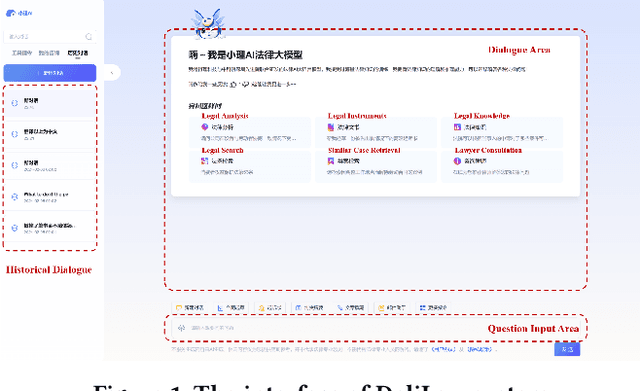
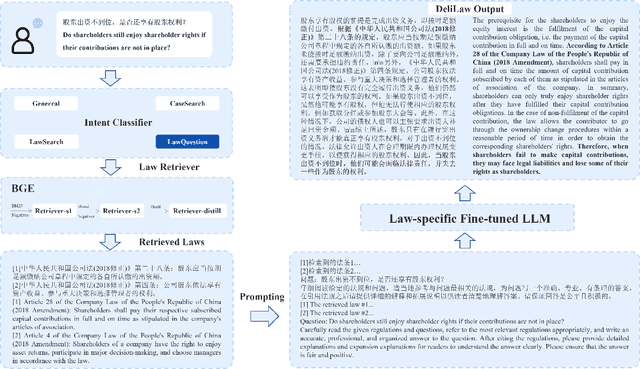
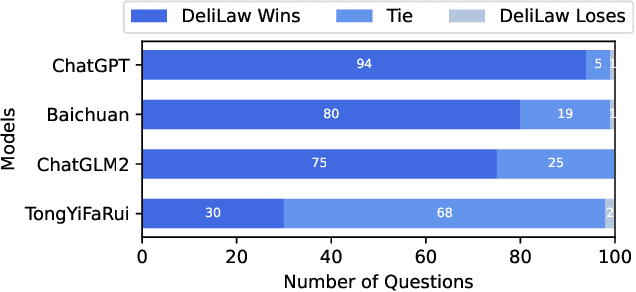
Abstract:Traditional legal retrieval systems designed to retrieve legal documents, statutes, precedents, and other legal information are unable to give satisfactory answers due to lack of semantic understanding of specific questions. Large Language Models (LLMs) have achieved excellent results in a variety of natural language processing tasks, which inspired us that we train a LLM in the legal domain to help legal retrieval. However, in the Chinese legal domain, due to the complexity of legal questions and the rigour of legal articles, there is no legal large model with satisfactory practical application yet. In this paper, we present DeliLaw, a Chinese legal counselling system based on a large language model. DeliLaw integrates a legal retrieval module and a case retrieval module to overcome the model hallucination. Users can consult professional legal questions, search for legal articles and relevant judgement cases, etc. on the DeliLaw system in a dialogue mode. In addition, DeliLaw supports the use of English for counseling. we provide the address of the system: https://data.delilegal.com/lawQuestion.
Design of optical voltage sensor based on electric field regulation and rotating isomerism electrode
Jun 14, 2022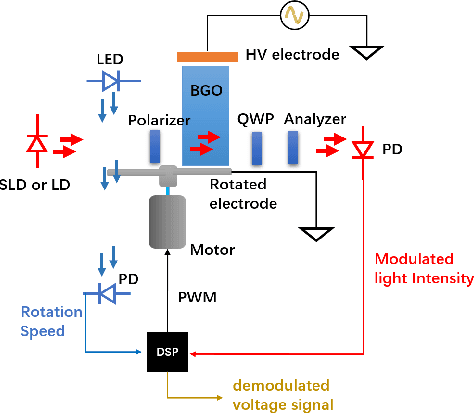
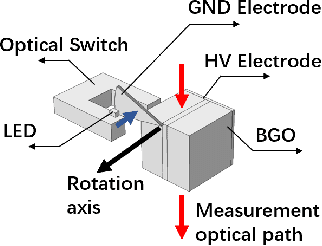
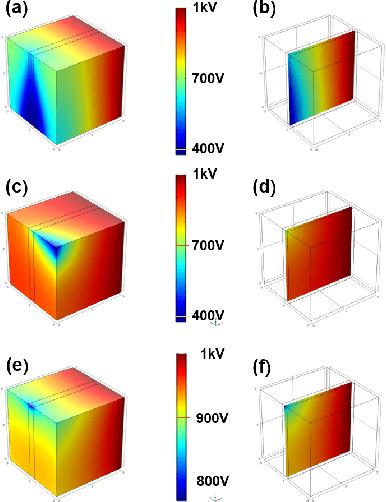
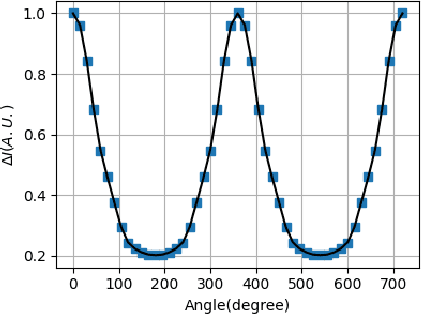
Abstract:Temperature drift, stress birefringence and low frequency vibration lead to the randomness and fluctuation of the output of optical voltage sensor(OVS). In order to solve the problem, this study adopts the lock-in amplifier technology with the aid of a high-speed rotating electrode to realize electric field modulation. This technology could shift the measured signal frequency band from near 50 Hz moved to several kilometer Hz, so as to make the output signal avoid the interference from low-frequency temperature drift, stress birefringence and vibration, leading to higher stability and reliability. The electro-optic coupling wave theory and static electric field finite element method are utilized to investigate the shape of modulation wave. The simulation results proves that lock-in technology is able to prevent the measured voltage signal from the large step signal interference and restore the perfect original signal. While the sample rate is decreased to the value of the modulation frequency.
 Add to Chrome
Add to Chrome Add to Firefox
Add to Firefox Add to Edge
Add to Edge